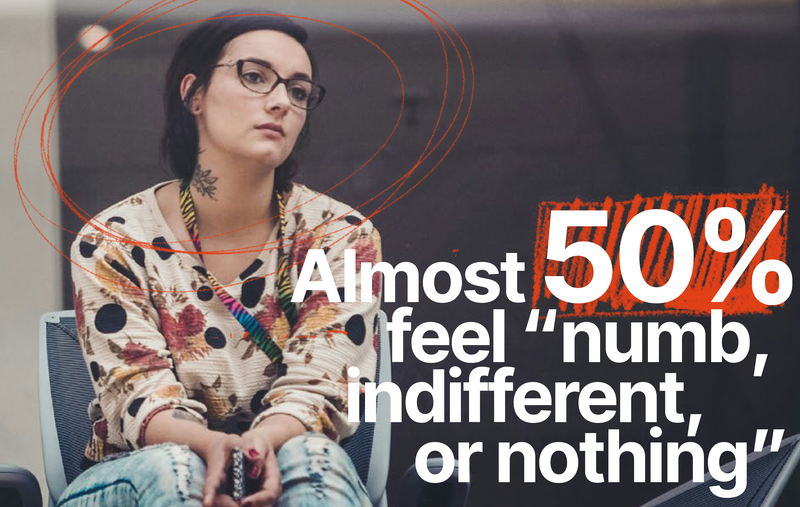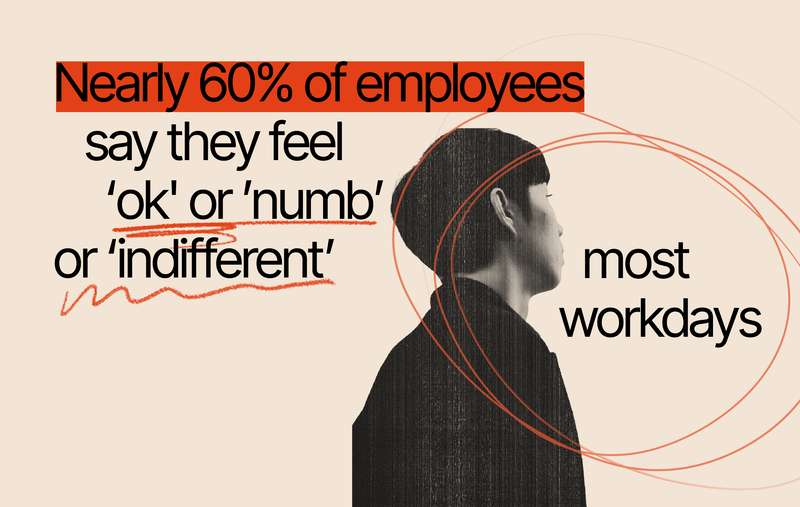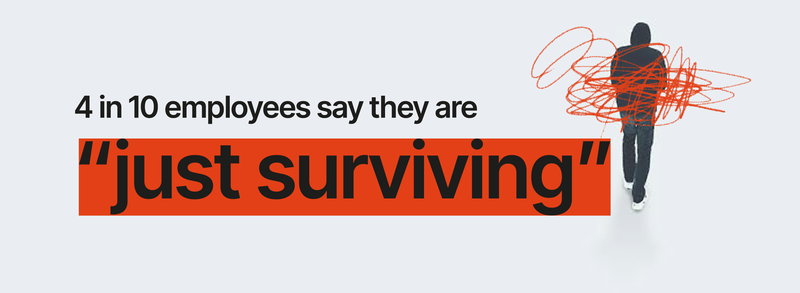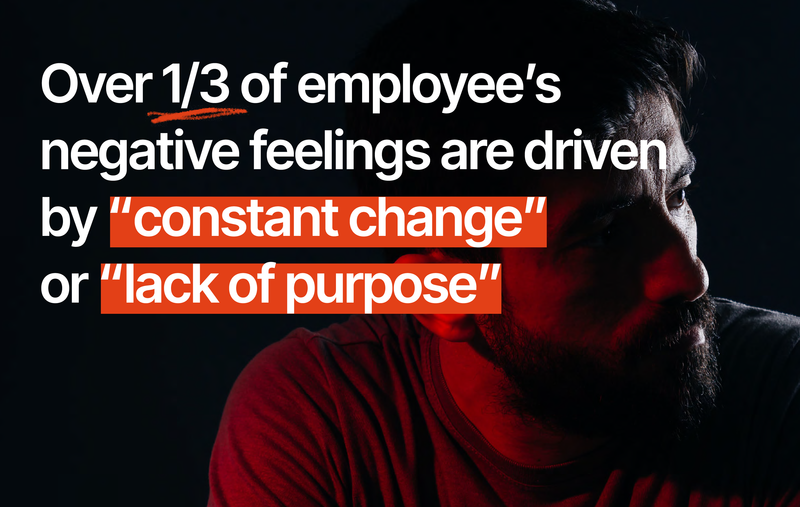Over the past year, Sponge has worked closely with global brands to uncover a troubling shift in how employees are showing up to work. Across industries, we’ve seen signals everywhere of a workforce retreating into self-preservation mode. They’re less engaged, more cynical, and increasingly detached. In a whitepaper, launched on 24th September 2025, we’ve detailed the characteristics and causes of this emerging reality we’re calling: Generation Numb.
To investigate these findings further, we combined analysis of 40 third-party research sources about employee experience, the impact of technology, and global events – with new survey data of 520 full-time employees working in large U.S. organisations (5,000+ employees) sourced through an independent survey provider.
The data confirms what we’ve been hearing from business leaders worldwide. While more acute reactions to workplace pressure such as anxiety and overwhelm remain very real, they are no longer the whole story. What we’re seeing now is the impact of their endurance over the past decade, through years of uncertainty, disruption, and digital saturation that were further intensified by the pandemic. This prolonged strain has given rise to a new set of dominant emotional experiences: not just stress in the moment, but a deeper state of numbness, self-preservation, and detachment.

Change feels like noise.
When companies announce new rules, ways of working, or strategies, almost 50% of employees say they feel numb, indifferent, or ‘nothing’ at all, with a further 30% reporting feeling overwhelmed or anxious as a result. Rather than igniting motivation, change is reinforcing detachment.

Disconnection is pervasive.
Despite always being “connected” online, 63% of respondents said they sometimes, often, or always feel disconnected from colleagues. For many, this sense of isolation is translating into reduced productivity, creativity, and engagement. Of these, a quarter say it’s made them ‘disengaged’, and a further 1 in 5 self-reports becoming ‘more cynical’ as a result.

Work is survival, not fulfilment.
Asked how they feel about their careers today, people’s most popular response (almost 4 in 10) was that they are “just surviving,” compared to only 8% who described themselves as “thriving.” In free-text responses to the question, “describe your relationship with work in one word", words like tired, indifferent, surviving, unfulfilling, and necessary appeared again and again, with a host of further descriptions adding colour to this sentiment: (“blah”, “meh”, “adequate”, “autopilot” and “I’m here to get paid”), painting a picture of work as endurance rather than a source of connection, identity, or stimulation. Excluding the responses that could not be categorised, 40% of respondents gave an answer that fell into this ‘numb’ category, with a further 19% giving an explicitly negative answer.
Purpose and stability are eroding.
The survey also points to a deeper driver behind these emotional states: meaning and stability. Over a third of respondents (36%) said their negative emotions at work are shaped most by unclear priorities or constant change (17%) or by a lack of purpose or meaning in the work (19%). Taken together, this highlights struggles that are less about workload or pressure – people are questioning whether what they’re doing matters, and whether the ground beneath them is steady enough to build on.

Support feels out of reach.
Even when employees are struggling, barriers prevent them from seeking help. More than a third (38%) don’t ask for support because they don’t believe it would make a difference. Another 21% say they don’t trust their manager or team.
At Sponge, we believe this data confirms a paradigm shift that leaders can no longer afford to ignore. If such a high proportion of the workforce is in a numb, ‘survival’ state of mind, motivating and driving new capabilities or behaviours your business needs to meet its performance goals becomes exponentially harder.
Our whitepaper, Mobilising Generation Numb, addresses not only this workforce ‘Malady’, but also describes the ‘Remedy’: a three-stage, ‘Me/Us/It’ framework – along with tactics designed for doing this at scale in large enterprise – that L&D and functional leaders can use to re-engage their people, rebuild trust, and reintroduce meaning into work.
About the survey:
The survey gathered insights from 520 employees working within enterprise-scale organizations. Respondents represented a broad mix of backgrounds, roles, and levels of professional experience, offering a diverse perspective on today’s workplace realities. The findings reflect voices across departments and career stages, painting a comprehensive picture of how employees are navigating change, strategy, and culture inside large businesses.
What is
Generation Numb?
In this video, the authors of the whitepaper, Olivia Haywood, CMO at Sponge, and Josh Cardoz, CCLO at Sponge, outline the key ideas and findings that led to the creation of the whitepaper.
